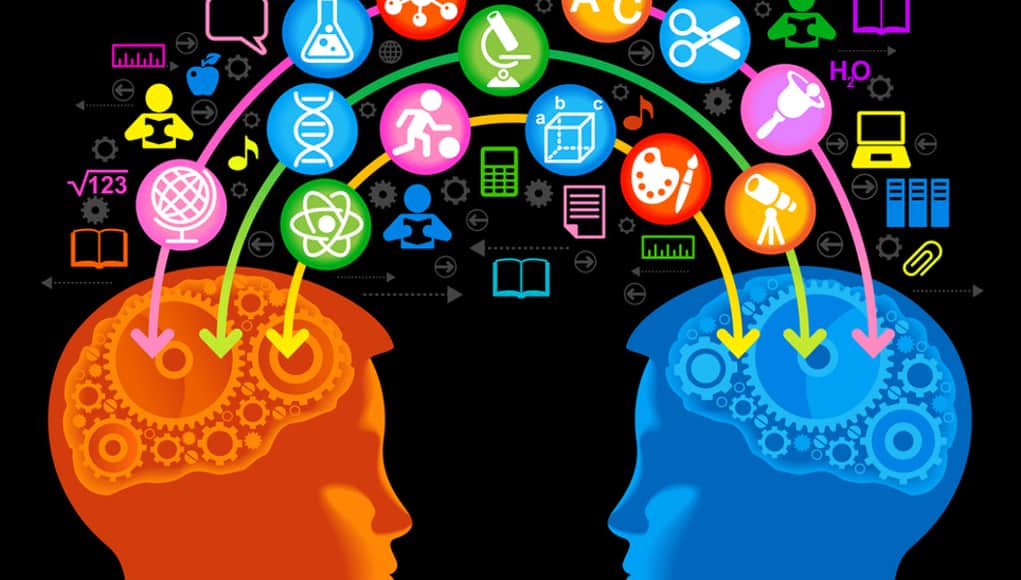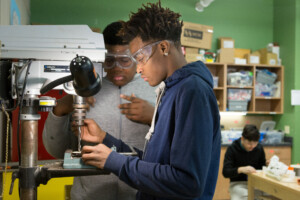Building Competencies for Future Careers

We often discuss the need for K-12 education to focus on preparing students for both college and careers, and the idea continues to gain wide acceptance among educators and policymakers. Consistent with this growth, the Hewlett Foundation developed its Deeper Learning initiative to “support setting new standards for equity and excellence in U.S. public education.”
Deeper learning focuses on the six key competencies students need to reflect the “higher-order skills and academic knowledge that are the surest path to postsecondary education and that students will need to succeed in 21st-century work and civic life”:
 In order to determine the extent to which deeper learning competencies apply to the workplace, the Center on Education Policy (CEP) conducted an analysis using occupations drawn from the Occupational Information Network (O*NET) database, a free online database that contains hundreds of occupational definitions to help students, job seekers, businesses and workforce development professionals to understand today’s world of work in the U.S.
In order to determine the extent to which deeper learning competencies apply to the workplace, the Center on Education Policy (CEP) conducted an analysis using occupations drawn from the Occupational Information Network (O*NET) database, a free online database that contains hundreds of occupational definitions to help students, job seekers, businesses and workforce development professionals to understand today’s world of work in the U.S.
CEP’s analysis of the six deeper learning competencies along with a sample of occupations from O*NET is reported in Building Competencies for Careers: Linking O*NET’s Occupational Elements with Deeper Learning Competencies. The report ultimately finds that students will be better prepared for fast-growing jobs if they develop academic mindsets, learn how to communicate effectively, and take an analytical approach to solving problems. Here are some of the report’s key findings:
- All 301 occupations analyzed by CEP require some types of deeper learning competencies.
- The deeper learning competencies are more important for occupations designated as Bright Outlook by O*NET than those designated as non-Bright Outlook (O*NET identifies Bright Outlook occupations as those that are expected to grow rapidly in the next several years, will have large numbers of openings or are new and emerging).
- The deeper learning competencies are more important for occupations that require more education, experience and training.
- The development of academic mindsets (wherein students develop attitudes and beliefs that lead to perseverance and productive academic behaviors) was the most important deeper learning competency based on this analysis across all job types.
- Other readiness skills emphasized by deeper learning (i.e., learn how to learn, communicate effectively, think critically and solve complex problems, work collaboratively) were also important for many jobs.
- Mastery of core academic content (students develop and draw from a baseline understanding of academic disciplines and are able to transfer knowledge) was the least important deeper learning competency based on the analysis.
The 301 occupations in the sample required a range of specific knowledge, skills, abilities and work styles (KSAWs). All of them required at least one deeper learning competency, and the following table shows the occupations with the highest and lowest percentage needed of all KSAWs:
 In addition, the following table shows the percentage of the sample occupations for which particular KSAWs were important (two work styles–attention to detail and dependability–were identified as important for all occupations in the sample as well):
In addition, the following table shows the percentage of the sample occupations for which particular KSAWs were important (two work styles–attention to detail and dependability–were identified as important for all occupations in the sample as well):
CEP also looked at the links between important KSAWs and deeper learning competencies across the five O*NET Job Zones. Each zone identifies the level of education, experience and training necessary to perform a given occupation, with Zone 1 requiring the least and Zone 5 the most. As shown in the following table, all deeper learning competencies have links to important KSAWs in every Job Zone, and the deeper learning competency develop academic mindsets is ranked the highest across all as well:
CEP’s analysis offers some interesting insights into how occupational experts view the range of KSAWs and work styles needed for a large sample of common occupations. The analysis also conveys a strong message of how, in addition to being academically prepared, today’s students need opportunities to develop important skills and competencies.
There is definitely a need to rethink how schools can best prepare and assess students so they are ready to successfully meet the challenges of a constantly changing global economy.
For more, see:
- Students as Stakeholders: Talking About College & Career Readiness
- Building a World Bridge to College, Career and Life Readiness
- Getting Smart Podcast | Why Guidance Matters for College and Career Readiness
Stay in-the-know with all things EdTech and innovations in learning by signing up to receive the weekly Smart Update.






0 Comments
Leave a Comment
Your email address will not be published. All fields are required.